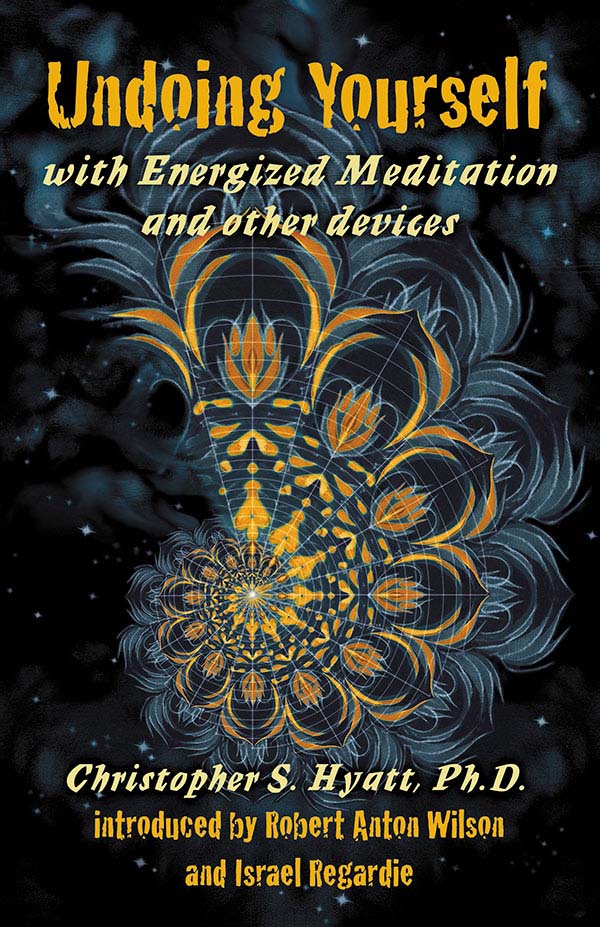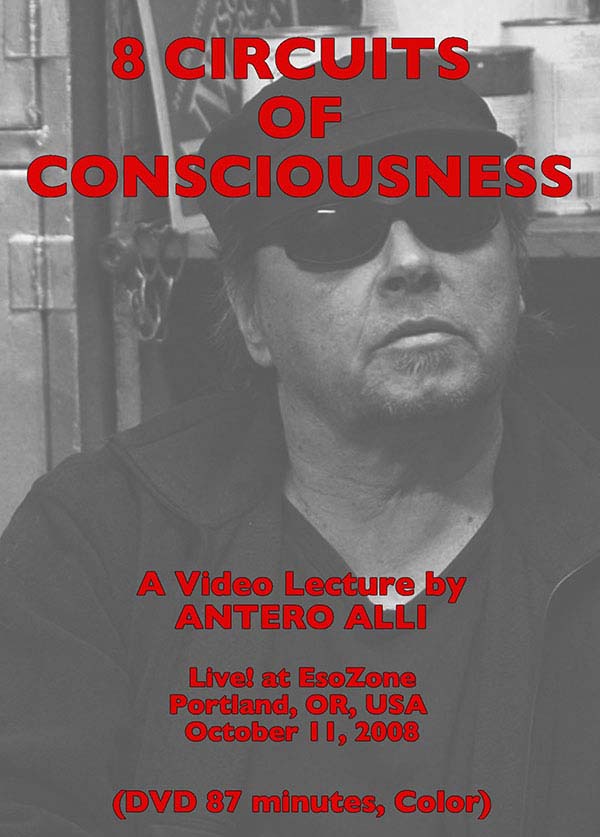Introduction
A week before my seventieth birthday, I was diagnosed with aggressive Non-Hodgkin's Lymphoma. Without six months or more of high-dose chemo-infusions to treat this disease, I was told I may have months, not years, before my inevitable decline and demise. I declined the chemo. Quality of life has always meant far more to me than quantity of years lived. I remain in symptom management until further notice.
From that day onward, my life passed before me like an epic fiction movie, a series of flickering moments against a starless black sky, illuminating a series of scenarios leading up to who I have become. Who was I? Who am I? In life, as in cinema, there are only moments. Also, as in cinema, I have come to see and know my life as fiction. True fiction is not make-believe, but naked truths wrapped inside stories.
LAST WORDS follows an unbroken stream of moments through five phases: Drifting Clouds, The Bardo Tunnels, Incantations, The Woman is Not the Anima, Reality-Challenged. These moments follow my thoughts, insights, actions, and feelings in an apparently random order—as in life—through various fields of experience. Though the reader may, or may not, discern a comprehensive narrative there right away—as with fiction and in life—a silver thread weaves through them all to their end reveal.
Last words. In daily conversation, I talk and talk until reaching that moment when I have nothing else to say and rest in that moment, knowing I've said enough, maybe too much. When conversing with friends, strangers or family, that last word moment opens a door beyond my mind to a silent presence, wordless. Beautiful.
Guided by dreams. Since I was nineteen, I have been chasing my dreams and have done the work to make most of them come true. My dreams were never about achieving fame, lots of money, or societal success. For the past fifty years, it's been all about living the Art Life—scripting and directing experimental theatre, writing books to map my journey, making films, and playing music—while learning enough skills as an astrologer to pay my bills. With an entire lifetime seemingly fulfilled at 70, I feel at peace with what looks like I may be soon closing this chapter in the Bigger Book of Reincarnations; maybe...
In this time of reflection, I can see how everybody probably experiences their lives, and their end times, through their own consciousness. Though death comes to us all, as in life, those experiences can also differ from those of others. I believe everyone is entitled to their dreams and whatever fantasies they entertain about themselves, life, the world, the future. Not all illusions are equal. Some keep us naive to real life while others make real life more bearable. Live and let live, I say.
There have been countless reports from people who have clinically died only to return to life with beatific afterlife visions and stories about their experience. There are also those who see their demise as a grand finale. Their end story belongs to them alone, or maybe others sharing their dream. I look at my experience as my own to live out and share as I wish. Though I don't imagine death as any portal to biblical heaven or as anything finale or absolute, I am content to let other visions exist (acronym for L.O.V.E.)
The truth about imagination is that it feeds the soul, makes a home for the soul. Lose your imagination, and soul has nowhere to hide, nowhere to spin its gossamer dreams, nowhere to call home. Without a home, the soul drifts away, vacating the premises, or is eaten by the cold hungry world.
Humans are vulnerable creatures, and real life can be dangerous, even fatal, at any given moment. Shit happens every day. Suffering is inevitable. Aging people slowly endure internal debilitation, the wounding symptoms of body, mind and soul, yet old age is also not a privilege granted to all. Growing old does not guarantee wisdom; insights must be earned. I have chosen to bear the crux of the burden of my own existence and its consequences, rather than carry the burdens of others or take on the never-ending impersonal karma of the world at large. Self-accountability feels like freedom to me.
Amor fati—that notion of whatever happens, it's all good, or at least, necessary. I remember during my cynical twenties I often accentuated the negative in most situations with my smug, buzz-killing, pessimistic bias. In my thirties I was converted by the spiritual bypass of new-agey positivity while naively denying my own shadow. Both negative and positive biases resulted in boring, two-dimensional lives. Whether I was self-negating or self-boosting, I was still stuck on myself.
One day, I simply got sick of myself and sought escape into novelty. I started making new experiences more important than who or what I thought I was. Turns out, I didn't really need a fucking self-image. I just needed to be nobody but myself wherever I went and with whomever I was with. Since people will always create images and ideas of who they think you are, I decided that what other people thought of me was probably none of my business; not my monkeys.
I knew that if I wanted to expand the playing fields of my life, my work, love, and art, I had to embrace myself, warts and all, and turn to face the many contraries within myself, others, and the world—the beautiful and the ugly, stupidity and intelligence, the weak and the strong. This decision initiated an ongoing path of radical self-acceptance, not just intellectually, but somatically through the Body with hundreds of others who trained and worked with me in Paratheatre, a transformative, ritual theatre medium that I started developing in 1977 (paratheatrical.com).
Many years of doing these transformative rituals turned me into something of a gnostic mystic in love with direct, firsthand life experience over any preconceptions and assumptions about them. I learned to allow ideas, images, and beliefs to organically emerge post-experience. For example, I don't like to interpret my night dreams. I'd rather have the dream itself unfold its own story. If I'm meant to know, it'll arise in me later. If not, I'm fine with not knowing.
My "paratheatrical research" mirrors, but does not replicate, Carl Jung's methods of active imagination for making the Unconscious, conscious—albeit through highly visceral and vocal self-expression. It's been my life's work. Paratheatre has also greatly impacted a highly collaborative style of writing screenplays and directing actors in my films. As a chiefly nonverbal medium, ritual theatre has shown me how to discover the subtext of each scene or moment in my scripts, beyond the words spoken by the characters. Instead of traditional line-reading rehearsals, I meet with the actors to discuss what we believe might really be going on in each moment and scene beyond what's spoken. I get how people rarely say what they mean, and more often, hold their truths back until it eventually percolates up from beneath the surface world of masks and personas.
When the actors and I are all on the same page with the subtext, they go off to memorize their lines, and I structure the film's production schedule. When on set, I shoot for the subtext, the underlying situation, as the actors speak their lines through that subtext. Here the situation becomes the boss. This means I'm ready to drop any plans in the face of greater truths emerging in the moment. This starts with observing the existing conditions at hand—the light, the actors' states, the shadows, the acoustics, the shapes and design of the setting. This is why I never had story-boarded my films or mapped out extensive shot lists.
What I find worth shooting is whatever comes alive before the camera. This includes those little "happy accidents" that spontaneously reveal hidden character behavior and motives, truthful moments of sheer silence. I must be very present to spot these moments. Sometimes, I don't let the actors know when I am filming and catch them when nobody's looking (see films at verticalpool.com and YouTube; free views).
I never could have done any of this all by myself. Most of my meaningful dreams have been realized with teamwork, and a constant interaction with local and nonlocal communities at large, collaborators and audiences alike. If it were not for my innately hermetic personality, I would've been eaten by the world long ago. (For the curious, I'm an INFJ-A in Myers-Briggs system based on Jung's early typology work.)
Over the last 27 plus years, Sylvi—soulmate and partner in art crimes—and I have celebrated our most prolific and fruitful days on earth. A fanatically talented artist in her own rites, Sylvi has profoundly influenced my work and everything we've created together. However, contrary to some beliefs, she is not my Muse—I care too much about her to put that on her. Sylvi's photographic art in this book exhibits a unique perspective all her own, a vision that has long since initiated me to the sheer beauty I often overlook in the details—the tiniest flowers, the glimmer of sunlight on ridged tree bark, the fiery burst of scarlet in a fallen autumn leaf.
Though we are much older now, we were never really about that sentimental idea of couples "growing old together." It's been more about discovering how to grow together as parallel lives crisscrossing at the junctures of Love, Art, and Community. She's the best thing that's happened to me.
Last words.







